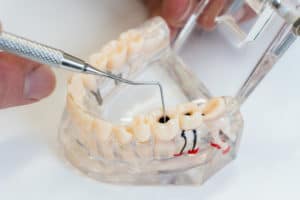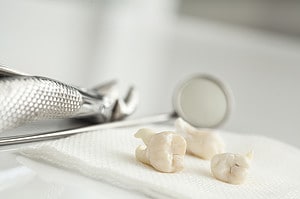When it comes to restoring a missing tooth, there are two primary options: dental bridges and implants. Both are viable choices, but the one that is more suitable for an individual depends on their individual needs and preferences.
In this article, we will discuss the best candidate for each option, the convenience factors, dental health benefits, types of implants and bridges, and provide advice for making a final decision. Additionally, we will discuss aftercare advice to help maintain the new restoration.
With this information, individuals can make an informed decision about which option is best for them.
Best Candidate
For the best outcome, it is important to identify the individual who is the most suitable candidate for either a dental bridge or an implant.
Candidates who are best suited for a dental bridge are those who have healthy teeth on either side of the gap, as the bridge will require support from these teeth. In order to properly affix the dental crowns of the bridge, these teeth must be free from decay.
However, if the surrounding teeth are not healthy enough to support a bridge, an implant-supported bridge or a single-tooth implant may be an option.
Those who are good candidates for a dental implant typically have healthy gums, as well as sufficient jawbone density to support the implant. In cases where there is not enough bone, a bone graft may be necessary prior to the implant procedure.
Ultimately, the best option for replacing a missing tooth must be determined on a case-by-case basis.
Convenience Factors
In addition to health requirements, convenience factors should also be considered when deciding between a dental bridge or dental implant.
For example, when a natural tooth is missing, adjacent teeth may need to be utilized as anchors for the false tooth. This means that healthy teeth must be altered to support the bridge.
The dental bridge procedure typically requires two separate visits to the dental professional, whereas a dental implant may only require one visit.
Additionally, the time required to complete the bridge vs implant procedure can also be a factor. A dental clinic may be able to provide their patients with the estimated time of completion for each of these tooth replacement options.
Ultimately, convenience factors should be discussed with a dental professional in order to determine the most suitable option.
Dental Health Benefits
When weighing the dental bridge vs. implant options, it is important to take into account the health benefits of each procedure in order to make an informed decision. Dental implants provide a strong and natural tooth replacement, as the artificial tooth is fused to the jawbone. This helps to preserve the jawbone and prevents periodontal disease from occurring. Dental prosthesis, such as dental bridge treatment, does not involve any surgery and is a less costly treatment option. However, implant bridges provide a more permanent solution for tooth replacement.
Dental implant surgery offers many advantages over dentures and bridge treatments, such as a natural smile, improved oral health, and less need for dental care routine. Additionally, dental insurance providers may cover some of the cost of implants, making them a more cost-effective option in the long term. For those looking for a more attractive smile, implants vs dentures are the preferred option.
When considering a bridge treatment or dental implant surgery, it is important to understand the advantages of each procedure and the dental health benefits that they offer. With a careful evaluation of the pros and cons, you can make an informed decision and choose the best option for your needs.
Types of Implants
Additionally, when considering implant treatments, it is important to consider the different types of implants available.
Gum disease, tooth loss, and bone loss can all lead to one or more missing teeth, and an oral surgery may be necessary to address the issue.
Restorative dentists may suggest a titanium post, which is inserted into the jawbone to replace the missing tooth root and is often used to replace a single tooth.
In cases of multiple missing teeth, abutment teeth are sometimes secured to the titanium post to provide support to a dental bridge.
This procedure is a permanent solution for tooth loss and helps to protect against further bone loss.
Therefore, understanding the types of implants available and consulting with a restorative dentist is essential for finding the best solution for replacing missing teeth.
Types of Bridges
Alternatively, dental bridges may be used to replace one or more missing teeth. Proper care and maintenance of a bridge can help maintain the teeth adjacent to the missing tooth for years.
The type of bridge recommended for a patient will depend on the bone density and tissue health of the mouth. For some, a bridge may be a permanent solution, while for others an implant surgery may be recommended instead. It is important to consult a qualified dentist to determine bridge candidacy.
A temporary bridge may be used while waiting for the permanent bridge to be placed.
The most common type of bridge is a tooth-supported bridge. With proper maintenance, a bridge can help restore a patient’s smile and provide a long-term solution.
Final Decision
Ultimately, it is important to consult a qualified dentist to determine which option is best for the individual patient, depending on the bone density and tissue health of the mouth.
Factors such as the patient’s chance of bone loss, bone structure, and time for bone growth and healing should be taken into account when deciding between a dental bridge or implant.
A dental bridge requires healthy bones to ensure the bridge is held firmly in place and is not at risk of bone recession.
A dental implant, on the other hand, requires time for the implant to properly fuse with the jawbone and heal properly, which can take up to several months.
Therefore, a patient needs to consider the benefits and risks of each option and determine which is best suited for their particular situation.
With the right information, a patient can make an informed decision that is best for their oral health and overall well-being.
Aftercare Advice
Once a patient has decided between a dental bridge or implant, it is important that they receive the proper aftercare advice to ensure the procedure is successful.
For dental bridges, the neighbouring teeth should be kept clean and healthy to ensure the bridge structure remains intact and strong.
If a patient opts for a dental implant, they should take extra care when brushing and flossing to prevent infection and ensure the implant stays secure.
For a bridge to implants, the patient should follow the same advice for a dental bridge, as well as take extra care when cleaning the area around the cantilever bridge or ceramic bridge.
Lastly, for any dental care procedure, the patient should take the time to brush and floss twice daily and visit their dentist regularly for checkups and cleanings.
With the proper aftercare advice, the dental bridge vs implant decision can be successful and provide long-lasting results.
Key Takeaways
When deciding between a dental bridge and an implant, it is important to consider all factors, such as the best candidate, convenience factors, dental health benefits, and types of implants and bridges.
Ultimately, the best option is dependent on the patient’s individual needs and preferences. It is important to seek advice from a qualified dental professional to ensure that the final decision is suitable for the patient’s needs.
Aftercare instructions should also be followed to ensure a successful outcome.
If you are looking for an experienced and qualified dental professional to help you decide which type of dental bridge or implant is right for you, look no further than Aspendale Gardens Dental Care. Located in Aspendale Gardens, VIC, Aspendale Gardens Dental Care provides comprehensive dental services and advice to help you make the best decision for your dental health. Contact us today to find out more.











